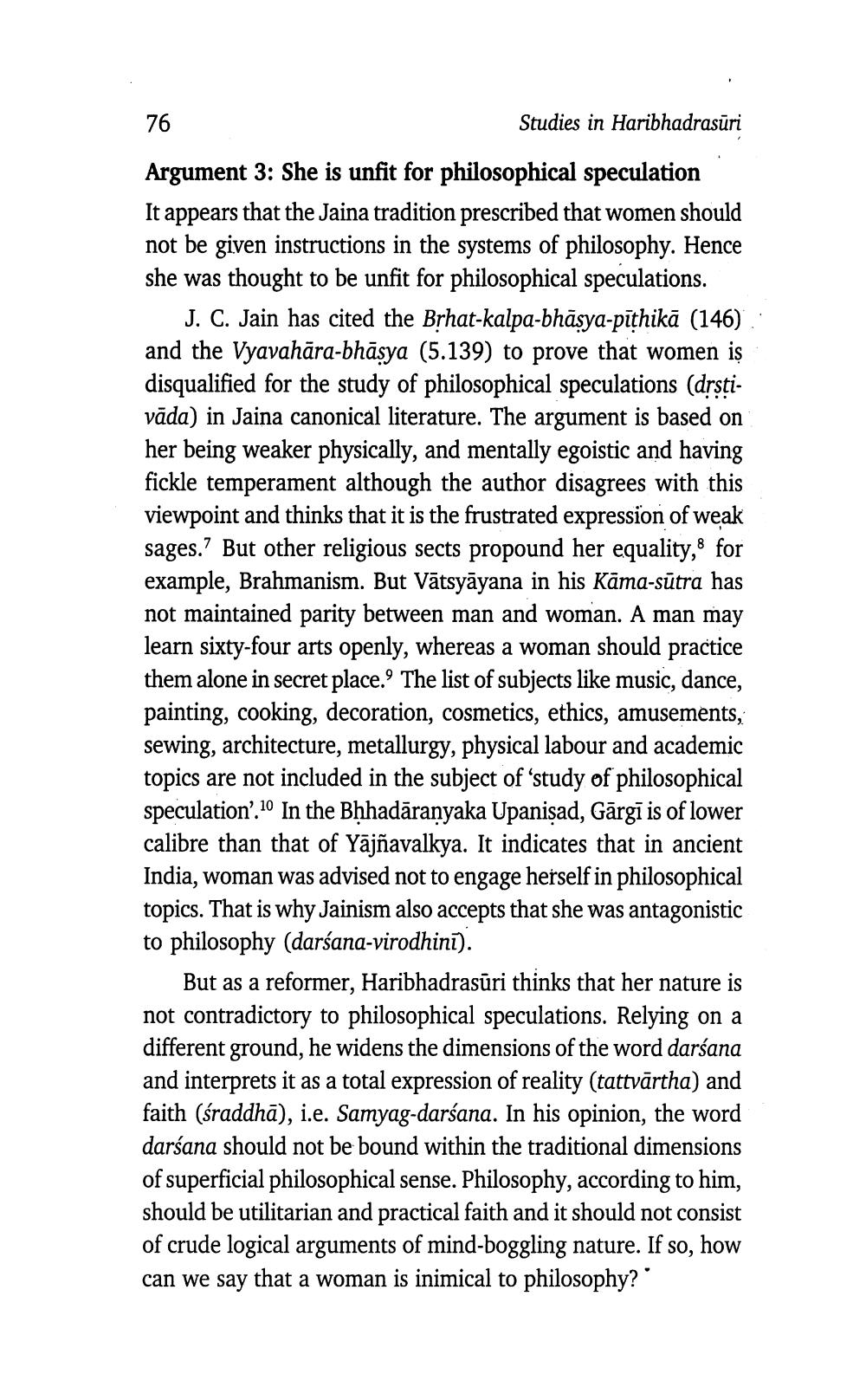________________
Studies in Haribhadrasūri
Argument 3: She is unfit for philosophical speculation It appears that the Jaina tradition prescribed that women should not be given instructions in the systems of philosophy. Hence she was thought to be unfit for philosophical speculations.
J. C. Jain has cited the Brhat-kalpa-bhāsya-pīthikā (146) and the Vyavahāra-bhāsya (5.139) to prove that women iş disqualified for the study of philosophical speculations (drstivāda) in Jaina canonical literature. The argument is based on her being weaker physically, and mentally egoistic and having fickle temperament although the author disagrees with this viewpoint and thinks that it is the frustrated expression of weak sages.? But other religious sects propound her equality,8 for example, Brahmanism. But Vātsyāyana in his Kāma-sūtra has not maintained parity between man and woman. A man may learn sixty-four arts openly, whereas a woman should practice them alone in secret place. The list of subjects like music, dance, painting, cooking, decoration, cosmetics, ethics, amusements, sewing, architecture, metallurgy, physical labour and academic topics are not included in the subject of 'study of philosophical speculation'.10 In the Bhhadāranyaka Upanişad, Gārgī is of lower calibre than that of Yājñavalkya. It indicates that in ancient India, woman was advised not to engage herself in philosophical topics. That is why Jainism also accepts that she was antagonistic to philosophy (darśana-virodhinī).
But as a reformer, Haribhadrasūri thinks that her nature is not contradictory to philosophical speculations. Relying on a different ground, he widens the dimensions of the word darśana and interprets it as a total expression of reality (tattvārtha) and faith (śraddhā), i.e. Samyag-darśana. In his opinion, the word darśana should not be bound within the traditional dimensions of superficial philosophical sense. Philosophy, according to him, should be utilitarian and practical faith and it should not consist of crude logical arguments of mind-boggling nature. If so, how can we say that a woman is inimical to philosophy?'




